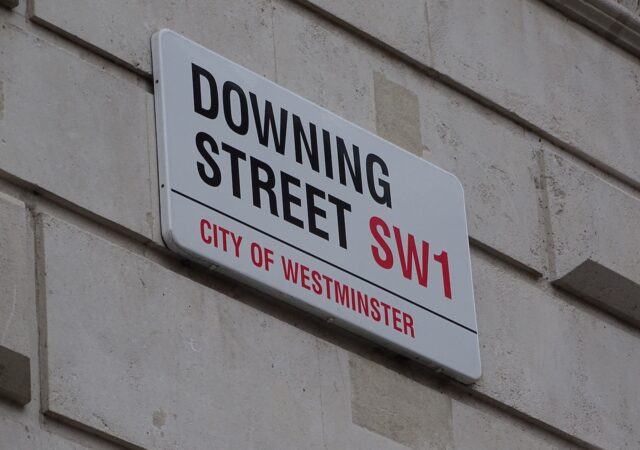Imagine going back in time 40 years and explaining that an energy drink company would rise to power, dominate Formula 1, own international sports teams and even send a man to the edge of space just so he could jump out and fall at 750mph. The first question people would ask is probably: “what on earth is an energy drink?”
Red Bull’s business model is far from conventional, making it a fascinating case study for anyone interested in business strategy.
Chartered Wealth Manager, Daniel Frampton explores how Red Bull makes money, and its journey to becoming a universally recognised brand.
Keep reading to find out more about some of the key business decisions that made this possible, and how Acumen’s personal financial planning services can help energise your financial outlook.
Who makes Red Bull, and where is it from?
Red Bull, like many successful brands, needs no introduction.
Red Bull is effectively the white labelling of a Thai drink called Krating Daeng. Dietrich Mateschitz, Red Bull’s founder, was travelling in Thailand and decided that copying the recipe and re-branding the drink would be a great way to make some money back home in Austria.
Mateschitz launched his caffeinated energy drink in his native homeland in 1987 and never looked back.
How Red Bull profits from sports tie-ins
Some of Red Bull’s marketing has been downright confusing – remember those branded Mini Coopers with a huge Red Bull can on the back? What was that all about?
Their sponsorship of extreme sports makes a little more sense. I admit to wasting countless hours on YouTube watching Red Bull athletes dive off cliffs, mountain bike down impossible descents, and complete death-defying stunts.
This sort of viral marketing is cheaper than traditional adverts – you make a video of your athletes performing death-defying stunts, and millions of people actively choose to watch. This is far more valuable than “end of part 1” adverts that annoy the viewer.
More recently, Red Bull has become a superpower on the Formula 1 scene. They propelled Sebastian Vettel and Max Verstappen to six World Driver Championships (three apiece) and bagged five Constructor’s titles in the process.
Red Bull company worth and turnover
Thanks, in part, to some unique and strategic investment decisions, Red Bull has become the centre of attention in the energy drinks game. It is now one of the world’s most recognised brand names of any industry.
They have essentially taken a low-cost, carbonated, caffeinated syrup and made it into a household name. Perhaps the most successful drinks brand since Coca Cola – and Red Bull didn’t need cocaine in its recipe to attract customers!
The numbers certainly don’t lie. Red Bull’s brand value was estimated to be EUR 16.96 billion in 2022, and their company profile states that more than 12 million cans of Red Bull were sold worldwide in 2023.
That equates to a turnover of a cool EUR 10.5 billion for Red Bull GmbH.
How does Red Bull make money?
Some of the questions I have always wondered is: how does Red Bull make money? How do they fund so many unbelievable projects, and why are they so often massively successful?
Despite the mammoth expenditure on advertising, Red Bull’s revenue is huge, and it is still an enormously profitable enterprise. It seems that every penny spent is well worth the cost.
A can of Red Bull costs $0.09 to produce and retails for an average of $1.79 – that’s quite the mark-up!
Despite them spending all that money on feats of extreme performance, parties and hangovers are the backbone of their company.
Jägerbombs and Vodka-Red Bulls are actually the context in which Red Bull sells the best. So, really, the drink is more likely to give you a headache than give you wings.
Even after the huge mark-up from cost of production to retail price, Red Bull as a company manages to squeeze a 10% net profit margin out of their cans.
What next for Red Bull?
I love Red Bull. That may be obvious by now! As a financial adviser, I think it’s fascinating. I don’t really understand how it can be so successful, but it is! It’s going to be interesting to see where this brand goes in the future and how they continue to shape the world.
Personally, I am just hoping for more World Drivers Championship and Constructors’ trophies for Red Bull Racing – and perhaps some more points for RB.
One thing is for sure: wherever Red Bull goes, controversy and showstopping antics are never far behind.
Energise your finances with Acumen
This deep-dive into the Red Bull Company is part of a series of blogs exploring the business models of global brands. If you enjoyed this read, check out our analysis of what makes Ferrari so successful.
If you’re feeling inspired to take control of your finances, Acumen’s multi-disciplinary team of financial advisers and planners is here to support your own financial success story with tailored financial planning services.
Contact us on 0151 520 4353 or email [email protected] to arrange a free consultation.
NB: This blog was first published on 4 May 2022 and has since been updated to provide the most accurate and up-to-date information available.



